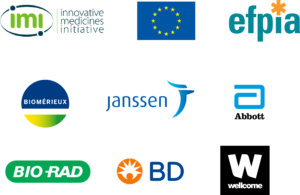Interview with Croatian AMR expert Arjana Tambic Andrasevic

Can you introduce yourself and describe your role in the AMR field?
I am a medical doctor, professor in clinical microbiology, and head of the Department of Clinical Microbiology at the University Hospital for Infectious Diseases in Zagreb, Croatia. I chair the National AMR Reference Center and have been involved in developing and managing the national AMR surveillance network since the 90s, the network known as the Croatian Committee for Antibiotic Resistance Surveillance. I also chair the Interdisciplinary Section for Antibiotic Resistance Control that coordinates intersectoral efforts at the Ministry of Health, the Ministry of Agriculture, and the Ministry of Science and Education. Internationally, I’m active in ESCMID, particularly in its subcommittee for education. I am also involved in coordinating groups of EARS-Net and CAESAR, two complementary surveillance networks for antimicrobial resistance, using the same surveillance methodology. The former is part of the ECDC and covers EU countries, the latter is organized by ESCMID, WHO Europe and RIVM and covers non-EU European countries. And lastly, I contribute to education initiatives through ESCMID and CAESAR, focusing on antimicrobial resistance and diagnostic stewardship.
Why should people be concerned about AMR?
An important reason for concern is the fact that bacteria adapt quickly, exchanging generations in just 20 minutes. The widespread use of antibiotics has led to resistant mutants prevailing. People should be aware that without effective antibiotics our life expectancy would decrease significantly. Not only have antibiotics allowed us to treat severe community acquired infections like meningitis and sepsis, but also to perform invasive medical procedures safely. If we lose this ability, many medical advancements, including transplant programs and various invasive diagnostics, will be jeopardized.
What is the expected impact of the work you’re doing?
I am heavily involved in surveillance and teaching as I firmly believe surveillance is the first step in understanding and controlling AMR. It provides measurable data to guide interventions effectively. That said, poor quality data can be misleading, so ensuring the reliability of surveillance data is essential and a point of permanent attention. This involves external quality control and proper sample collection. Accurate surveillance data helps in assessing the impact of interventions and guiding future national and international investments.
What is the situation in Croatia at the moment in regards to AMR?
In Croatia, our antibiotic consumption is around the European average. However, infection control and prevention are equally important. We are working towards improving hospital infrastructure, like increasing the percentage of single rooms, which helps healthcare workers to comply with hygiene protocols. Staff shortages and overcrowding in acute care hospitals pose serious challenges in our country. At the level of the intersectional ministerial committee, we are also advocating for mandatory antimicrobial stewardship teams in hospitals to ensure better management and compliance.
How did the COVID-19 pandemic impact the research on AMR?
During the second wave of COVID-19 in 2020, our real-time feedback on alert organisms was briefly interrupted due to overwhelming workloads. However, our overall surveillance activities continued. The pandemic caused an increase in nosocomial infections (healthcare-associated), especially due to carbapenem-resistant Acinetobacter baumannii. In addition to the overwhelming number of critically ill COVID-19 patients leading to overcrowding and staff shortage, overuse of personal protective equipment led to lapses in standard precautions. Despite these challenges, we maintained our surveillance efforts and adapted our practices to ensure ongoing AMR monitoring.
One of the aims of VALUE-Dx is to demonstrate the value of diagnostics to change the antibiotics prescribing behaviour. Can you comment on this?
Rapid diagnostics are essential for improving antibiotic prescribing behaviour, offering numerous opportunities for timely and accurate testing. However, there must be a balance, as over-reliance on multiplex platforms can be costly and requires careful interpretation. Crucially, the organization of laboratory services is vital: acute care hospitals dealing with life-threatening infections need 24/7 access to microbiology labs to maximize the benefits of rapid diagnostics. Effective lab services can significantly reduce turnaround times, which is critical in urgent cases. Furthermore, rapid test results should also guide de-escalation of therapy, ensuring the use of the narrowest yet effective antibiotics, and help in determining when antibiotics are unnecessary. Excluding the need for antibiotics through rapid testing is indeed important, but clinical judgment should always precede test results to ensure optimal patient care.
- About Arjana Tambic Andrasevic
Dr Arjana Tambic Andrasevic is a consultant microbiologist since 1993, and is currently the head of the Department of Clinical Microbiology at the University Hospital for Infectious Diseases in Zagreb. She gained part of her training working as an honorary registrar and lecturer at Guy’s and St. Thomas’s Hospitals, London. Dr Tambic Andrasevic has been involved in a number of national and international committees. Her field of interest is antibiotic resistance surveillance and infection prevention and control. She is currently a member of the ESCMID Education Subcommittee, a member of the EARS-Net Coordination Group, a WHO consultant for antibiotic resistance surveillance and a member of the Central Asian and Eastern European Surveillance of Antimicrobial Resistance (CAESAR) Coordination Group.

More interviews
AMR expert interview with Dr. Füsun Can
Meet Dr. Füsun Can, a medical doctor and professor in Istanbul. She leads a multidisciplinary team focused on antibiotic resistance research. With expertise in virology and a commitment to collaborative efforts, Dr. Can’s work extends beyond the laboratory, aiming to address emerging infectious disease challenges across Turkey.
AMR expert interview with Dr. Agnes Sonnevend
Read our interview with Dr. Agnes Sonnevend from the Pécs University Hospital in Hungary. Dr. Sonnevend elaborates on the importance and challenges of tackling AMR, her role in this and more.
Interview with PhD student Juan Pablo Rodriguez Ruiz
Read our interview with PhD student Juan Pablo Rodriguez Ruiz at the Laboratory of Medical Microbiology at the University of Antwerp. He discusses his work with Work Package 2 within Value-Dx, his future tasks and more.


